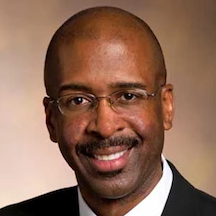 A new study from Middle Tennessee State University professor, Andrew Dix, has found that there appears to be a significant racial bias among referees against women college basketball players at HBCUs. The study examined data from 333 Division I women’s basketball teams that played every season from 2008 to 2017, 23 of which were from HBCUs. He calculated the total number of personal fouls per game and the 10-year average for each team.
A new study from Middle Tennessee State University professor, Andrew Dix, has found that there appears to be a significant racial bias among referees against women college basketball players at HBCUs. The study examined data from 333 Division I women’s basketball teams that played every season from 2008 to 2017, 23 of which were from HBCUs. He calculated the total number of personal fouls per game and the 10-year average for each team.
The author believes the study provides significant evidence that there is a competitive disadvantage for women basketball players at HBCUs. Over the 10 seasons studied, the top five most penalized teams were HBCUs, and eight out of the top fifteen teams were HBCUs. However, HBCUs only represented 7 percent of the colleges and universities that were analyzed. The average HBCU team was called for an additional 1.5 fouls per game compared to non-HBCU teams.
Dr. Dix stated that “this research reveals evidence of flawed officiating, and exposes a hidden socio-cultural issue in which female basketball players from historically black colleges and universities are at a competitive disadvantage when they step onto the court. Creating awareness and fostering a dialogue on referee bias is an important step towards facilitating meaningful change in the officiating of women’s college basketball.”
The full study, “’And 1′ More Piece of Evidence of Discrimination Against Black Basketball Players,” was published on the website of the Howard Journal of Communication. It may be accessed here.











